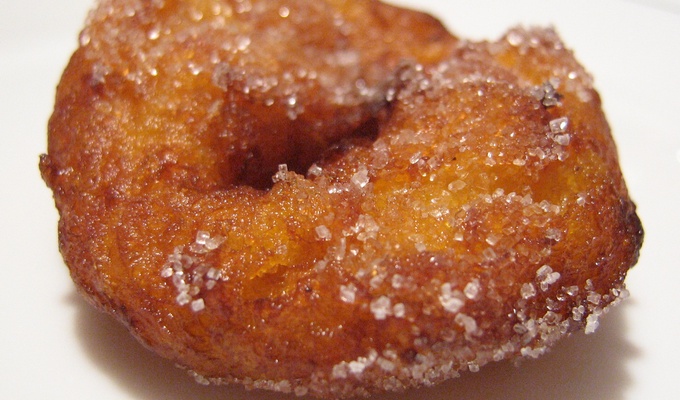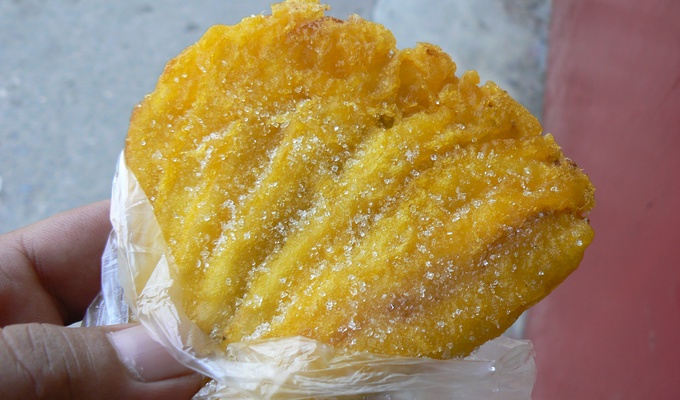A buñuelo is a fried dough fritter found in Spain, Latin America, Israel, and other regions with a historical connection to Spaniards or Sephardic Jews, including Southwest Europe, the Balkans, Anatolia, and other parts of Asia and North Africa. Buñuelos are traditionally prepared at Christmas, Ramadan, and among Sephardic Jews at Hanukkah. It will usually have a filling or a topping. In Mexican cuisine, it is often served with a syrup made with piloncillo.
Buñuelos are first known to have been consumed among Spain's Morisco population. They typically consist of a simple, wheat-based yeast dough, often flavored with anise, that is thinly rolled, cut or shaped into individual pieces, then fried and finished off with a sweet topping. Buñuelos may be filled with a variety of things, sweet or savory. They can be round in ball shapes or disc-shaped. In Latin America, buñuelos are seen as a symbol of good luck.

